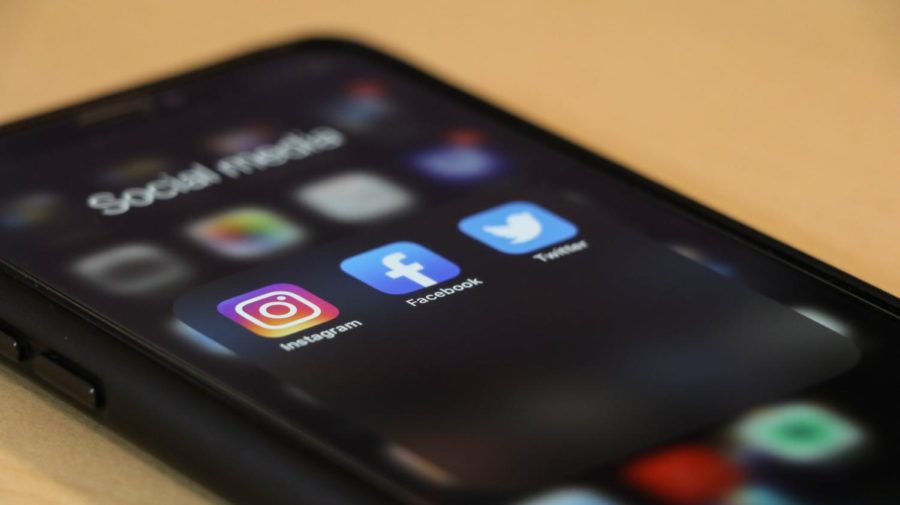Editorial: Prioritizing society over profits
The ISD Editorial Board explains how the addictive nature of social media apps are detrimental to users and proposes changes to fix the problem.
June 13, 2021
Think about your average morning. After you wake up, what is the very first thing you do? For many people, the answer is to grab their phone and start their first social media rotation of the day. Check Snapchat, then onto Instagram, Twitter, Reddit and so on until 30 minutes have passed and you’re completely behind schedule. We often have no goal when we open up an app anymore; it’s just something we seem to do on command. This is no coincidence.
These popular social media apps are designed to keep you glued to the screen by hacking into the addictive tendencies of the brain. The simplest mechanisms we tend not to think about cause huge effects in our brains. When you have finished reading your feed, what do you do? You scroll to the top and pull down, just like a slot machine. Another interesting tweet may show up or it may not; each time, you are taking a miniature gamble to see if you will be entertained again and get that small dopamine hit.
Now, this effect has been paired with the never-ending feed. You may remember when apps began switching from chronological timelines to algorithmic timelines. With chronological timelines, you could read your entire feed and refresh to see if anyone had posted. If nobody had posted since you had opened the app, you would close out. This was bad for the app developers that need us to keep their app open, so they created the algorithmic feeds.
Now, every time you pull the screen to refresh, there absolutely will be something new for you to see. It may have been from two days ago or from someone you do not follow, but it doesn’t matter. It’s more for you to intake and get that small reward signal in your brain.
What is the purpose of keeping people constantly glued to an app? As is the answer with many things: profits. Most social media is free to download and use, so the money is not being generated there. It’s being made in the advertisements you see while scrolling along your feed. Take, for example, your Instagram feed. Every four posts is an advertisement. Companies pay social media corporations to place themselves in front of your eyes on your feed.
If you aren’t scrolling, you aren’t seeing ads, and corporations aren’t being paid. An army of addicted users mindlessly scrolling along their feeds without end is the most profitable model.
It sounds bad on paper, but if it’s not hurting anyone, does it really matter that much? The issue is social media is becoming increasingly linked to some of the largest issues in society today, particularly among younger generations. One of these is the emerging mental health crisis. A review of multiple studies found that social media use can be detrimental to the psychological health of its users, showing a causal link to increased anxiety and depression among social media users.
Another societal issue we are seeing is the rise of political polarization and extremism. This has also been found to be linked to the rise of social media and its mechanics. Users are more likely to engage with political content they agree with, which triggers an emotional reaction — good or bad. This keeps them on the platform longer and therefore generates more revenue.
So, social media algorithms will see this kind of content keeps you active longer and will flood your feed with more things you agree with along with more intense posts that will continue to grab your attention. This creates “echo chambers” of opinions online, filled with the most intense political takes on the internet, and often completely void of any dissenting opinions.
This begs the question: should we let big tech companies openly create addictive apps and websites that are shown to degrade mental health and increase polarization in the name of corporate profits? One would hope that a majority of us would answer no, but what steps can we possibly take to combat this trend?
One step could be banning some of the blatantly addictive features that are not crucial to the broader purpose of the app. The pull to refresh and algorithmic timelines are built almost entirely to addict users, and could be removed while still preserving the core purpose of the platforms. A second and more extreme step could be to begin a modern trust-busting crusade of tech companies. During the 10-year span from 2010 to 2019, Facebook owned the top four most-downloaded apps — a near monopoly of the world’s attention.
Any regulations, however, must be put in place in a way that preserves the bright side of social media. The initial use of these platforms was largely positive, allowing families to connect, friendships to be created and giving usually overlooked communities a chance to make their mark. This side of the internet does not have to be sacrificed to end the darker side of these platforms.
Going forward, be more aware of what you are doing when you are scrolling along. Are you actually learning or retaining any information? Are you truly being entertained? Or are you just mindlessly scrolling along? Ask yourself if this is a good direction for us to be heading in and if there’s anything we can do to change it. And maybe, if you are feeling taken advantage of by these apps, just delete them.







